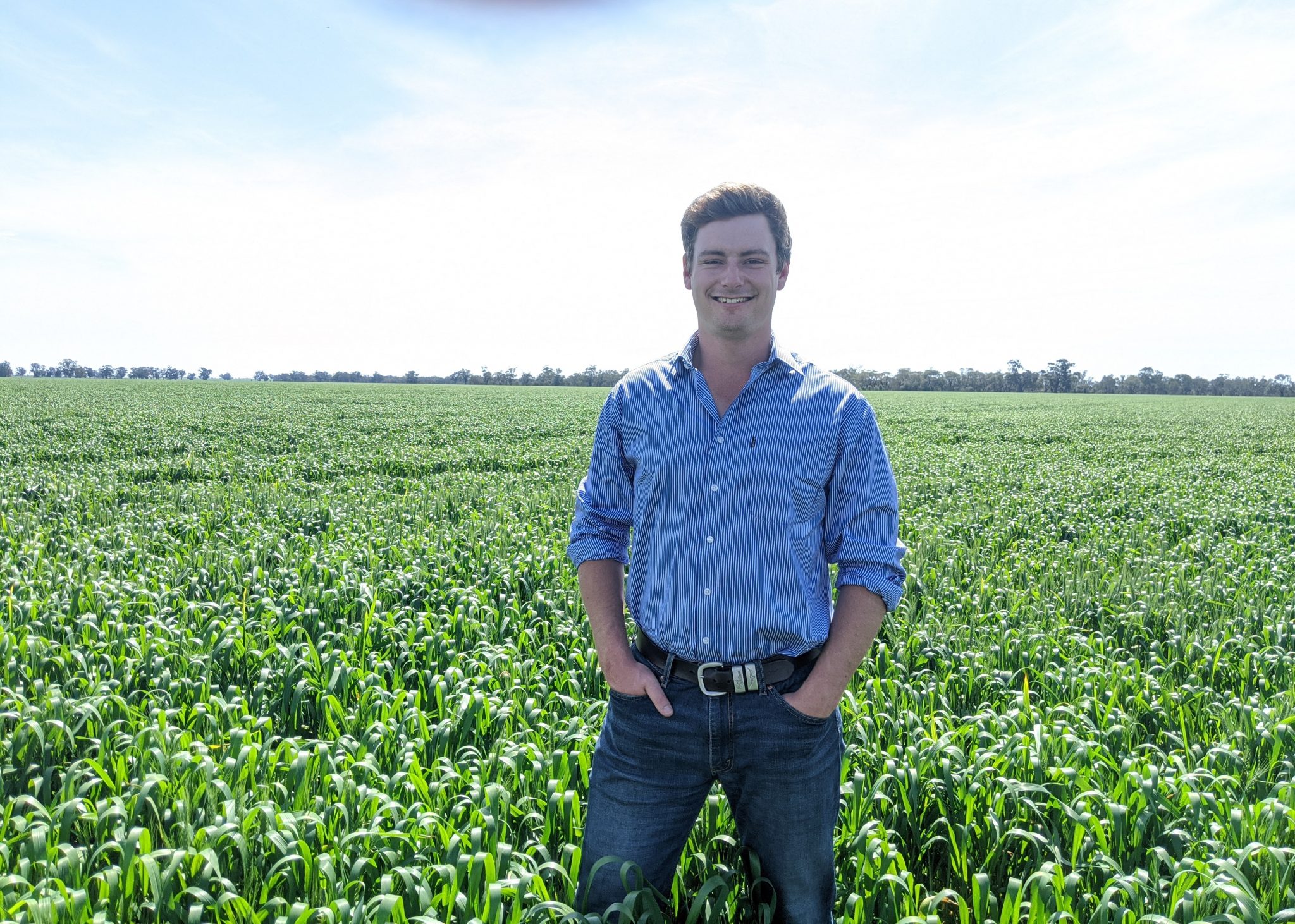
The mindset of a young farmer
Charlie’s double degree is currently through distance education at the University of New England in Armidale as a result of the current COVID-19 pandemic. “I am studying both agriculture and business because I wanted to ensure I could learn about the science behind our production systems as well as ways to manage a business successfully” said Charlie.
Charlie doesn’t believe the old adage, “If it works why change it,” is applicable to the up and coming younger generation of farmers. “The future is about being risk aware, considering future prospects and being innovative where it is practicable and sustainable to do so.”
Passion for innovation
In between farming and fulltime study, Charlie’s other passion is integrating agtech into the family farm.
He has been conducting field research trials and flying a drone to map weeds in fallow paddocks to create spraying prescription for weeds. The drone technology processes imagery using GIS software and algorithms.
“Currently, I am loading prescription maps for individual paddocks into a self-propelled sprayer with individual nozzle control. The aim is to enable a sprayer that is traditionally used for blanket applications to have the capability to target individual weeds. There is the potential of cost savings up to 90% in a fallow situation, dependent upon the conditions when spraying.”
Charlie admits that while agtech will be instrumental in farming over the next fifty years, it is just part of the story.
“What’s important is that it is used in conjunction with other methods such as increasing crop rotation and diversity, limited-till farming, GPS Tramlining, variable rate technologies and strategies to handle chemical resistance,” said Charlie. “There’s no doubt we will see robotic farming integrated on farms in the future, it’s just a matter of time.”








